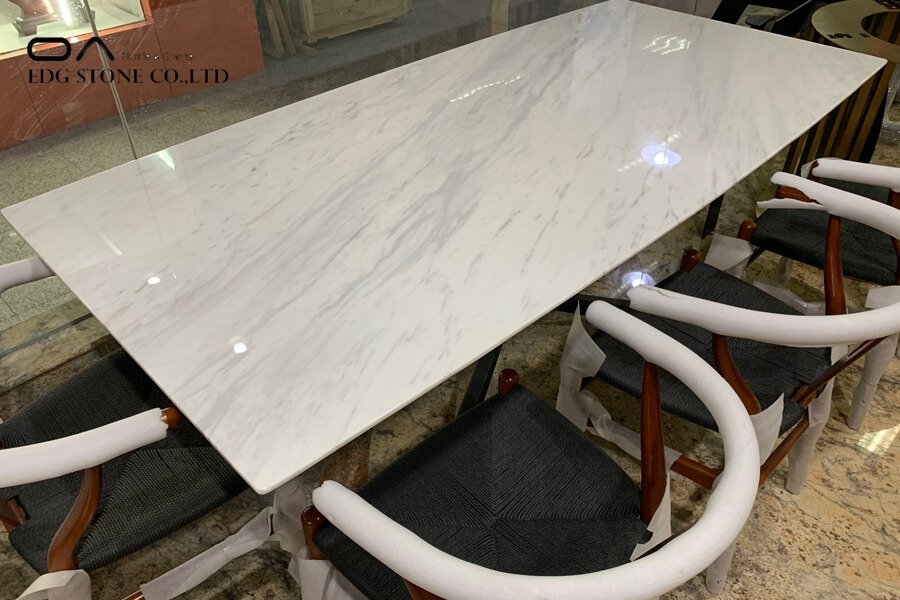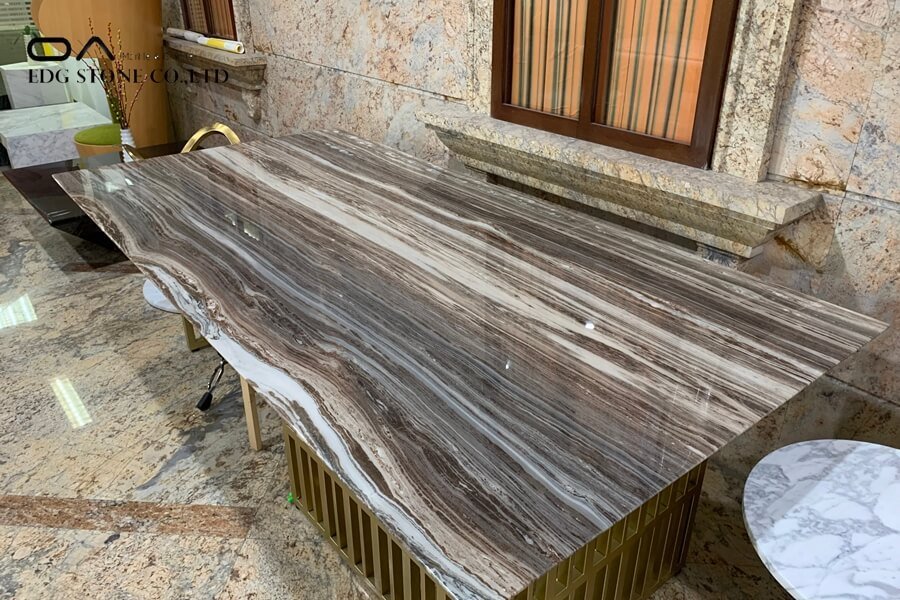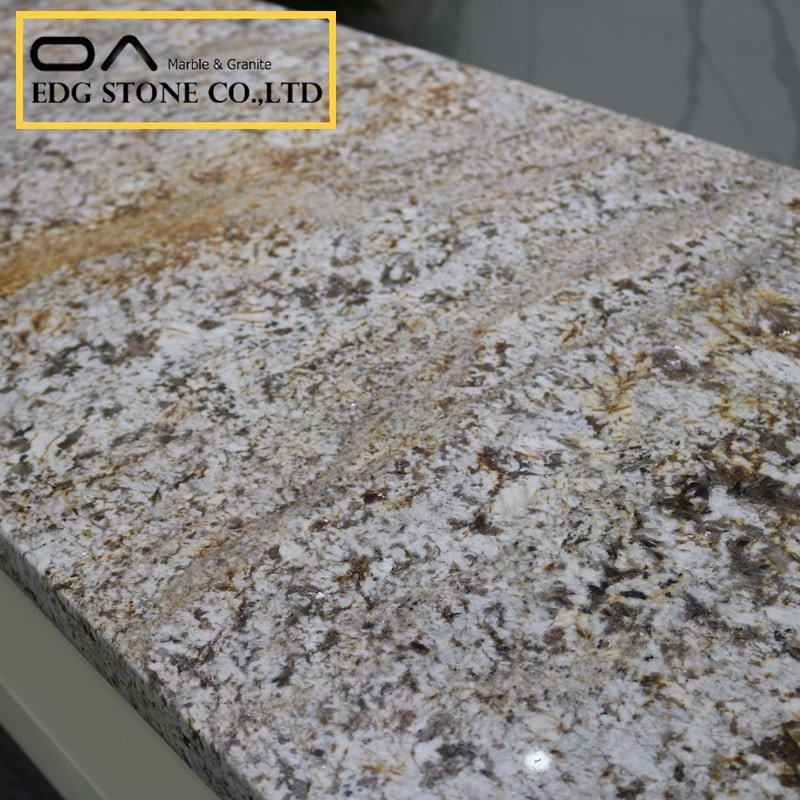Slate is a fine-textured metamorphic rock derived from clay and fine sand in sediments. Under the action of intense heat and force, the original clay becomes new minerals such as mica, chlorite, and quartz. After a series of natural actions, clay becomes slate. The composition of slate is often different. There are some characteristics in the natural process of slate formation, and it is these characteristics that make slate a good choice for kitchen countertop materials. Slate is a natural material known for its strength and durability, just like granite and marble.
Slate countertops can add elegance to the kitchen. Slate has the same hardness and durability as granite and marble but does not require frequent maintenance, compared to countertops made of other materials.
Many people only associate slate with roofing materials and outdoor sidewalk materials. In fact, slate is also an excellent material for kitchen countertops. This is mainly because the slate has low absorption. This means that slate countertops are more resistant to stains and can reduce the risk of bacteria breeding.
Many kitchen design experts praised that slate is even better than marble or granite because slate countertops have a low absorption rate and do not need to be sealed. Most slate countertops are inherently antifouling. From this point of view, the slate countertop is really outstanding. Choosing slate as a kitchen countertop is equivalent to choosing a natural stone with rich texture and natural beauty.
Although most of the slate is dark, it also has red, green, blue, and purple colors.
Slate is a dense sedimentary rock composed of clay and volcanic ash. It takes thousands of years to form dense mica crystals. As a fine-grained natural stone, the slate has a flat and smooth surface. The slate has a rustic appearance, with colors of gray, red, and green. Slate is considered to be softer than granite. When it comes to the appearance of slate, careful consideration must be given to the design and application to maximize its effectiveness.
Slate countertops require very little care, just use daily household cleaners to clean them. Mineral oil can also be used to protect slate countertops.
One of the features of kitchen slate countertops is stain resistance, heat resistance, and water resistance. The kitchen slate countertop is elegant and easy to clean. Regular polishing can maintain the natural luster. The kitchen slate countertop can be used for cutting vegetables and preparing food.
Kitchen slate countertops can be ground into a flat, non-smooth surface. This honing process can make the slate surface durable, powerful, simple, and natural. Slate can produce luster after being soaked in oil.
Kitchen slate countertops come in a variety of different shapes, colors, and sizes, and any kitchen design style can match it well.







